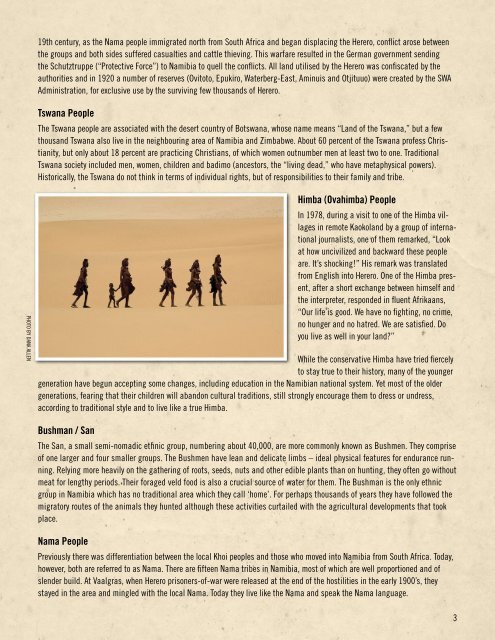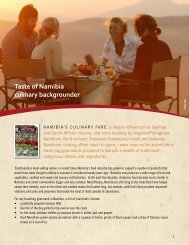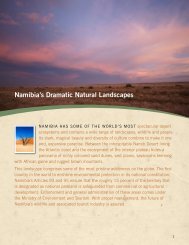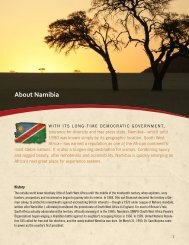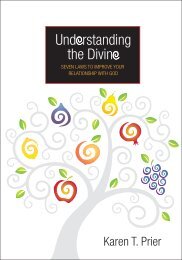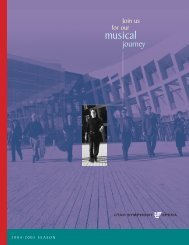Create successful ePaper yourself
Turn your PDF publications into a flip-book with our unique Google optimized e-Paper software.
Photo by Dana Allen<br />
19th century, as the Nama people immigrated north from South Africa and began displacing the Herero, conflict arose between<br />
the groups and both sides suffered casualties and cattle thieving. This warfare resulted in the German government sending<br />
the Schutztruppe (“Protective Force”) to Namibia to quell the conflicts. All land utilised by the Herero was confiscated by the<br />
authorities and in 1920 a number of reserves (Ovitoto, Epukiro, Waterberg-East, Aminuis and Otjituuo) were created by the SWA<br />
Administration, for exclusive use by the surviving few thousands of Herero.<br />
Tswana <strong>People</strong><br />
The Tswana people are associated with the desert country of Botswana, whose name means “Land of the Tswana,” but a few<br />
thousand Tswana also live in the neighbouring area of Namibia and Zimbabwe. About 60 percent of the Tswana profess Christianity,<br />
but only about 18 percent are practicing Christians, of which women outnumber men at least two to one. Traditional<br />
Tswana society included men, women, children and badimo (ancestors, the “living dead,” who have metaphysical powers).<br />
Historically, the Tswana do not think in terms of individual rights, but of responsibilities to their family and tribe.<br />
Himba (Ovahimba) <strong>People</strong><br />
In 1978, during a visit to one of the Himba villages<br />
in remote Kaokoland by a group of international<br />
journalists, one of them remarked, “Look<br />
at how uncivilized and backward these people<br />
are. It’s shocking!” His remark was translated<br />
from English into Herero. One of the Himba present,<br />
after a short exchange between himself and<br />
the interpreter, responded in fluent Afrikaans,<br />
“Our life is good. We have no fighting, no crime,<br />
no hunger and no hatred. We are satisfied. Do<br />
you live as well in your land?”<br />
While the conservative Himba have tried fiercely<br />
to stay true to their history, many of the younger<br />
generation have begun accepting some changes, including education in the Namibian national system. Yet most of the older<br />
generations, fearing that their children will abandon cultural traditions, still strongly encourage them to dress or undress,<br />
according to traditional style and to live like a true Himba.<br />
Bushman / San<br />
The San, a small semi-nomadic ethnic group, numbering about 40,000, are more commonly known as Bushmen. They comprise<br />
of one larger and four smaller groups. The Bushmen have lean and delicate limbs – ideal physical features for endurance running.<br />
Relying more heavily on the gathering of roots, seeds, nuts and other edible plants than on hunting, they often go without<br />
meat for lengthy periods. Their foraged veld food is also a crucial source of water for them. The Bushman is the only ethnic<br />
group in Namibia which has no traditional area which they call ‘home’. For perhaps thousands of years they have followed the<br />
migratory routes of the animals they hunted although these activities curtailed with the agricultural developments that took<br />
place.<br />
Nama <strong>People</strong><br />
Previously there was differentiation between the local Khoi peoples and those who moved into Namibia from South Africa. Today,<br />
however, both are referred to as Nama. There are fifteen Nama tribes in Namibia, most of which are well proportioned and of<br />
slender build. At Vaalgras, when Herero prisoners-of-war were released at the end of the hostilities in the early 1900’s, they<br />
stayed in the area and mingled with the local Nama. Today they live like the Nama and speak the Nama language.<br />
3


